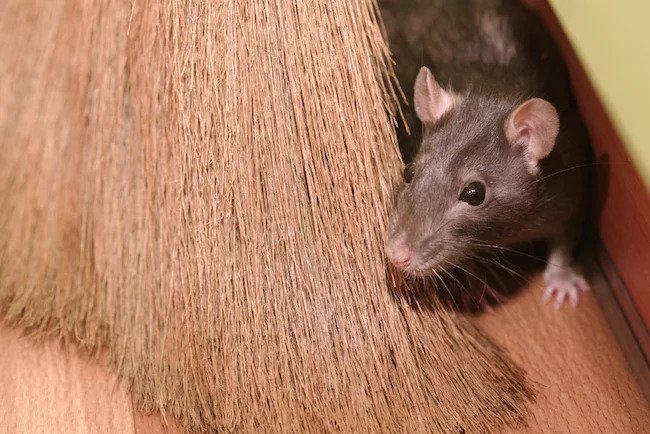Mouse poop cleaning should be done very carefully.
Mouse droppings in attic dangerous.
This can cause odor problems a breeding ground for mold is host to potential pathogens and health risks and the odor can contain phermonones that attract other mice into the attic.
Spray the dead rodent or nest and the surrounding area with a disinfectant or a mixture of bleach and water.
Soak rodent nesting materials or droppings in solution for 5 minutes before wiping up with a paper towel or rag.
Place the dead rodent or nesting materials in a plastic bag and seal tightly.
Hantavirus while rare can be deadly.
Hantavirus is one of the greatest health concerns associated with mouse droppings.
There are several others including hemorrhagic fever and lymphocytic choriomeningitis that can be transmitted directly by mice and their droppings.
The virus lives inside mice feces and when disturbed can become airborne.
For example a broom used to clean up mouse droppings in an attic may nudge into the air tiny particles of feces containing hantaviruses which you can then easily inhale.
Hantavirus infection in humans may prove fatal.
Place the full bag in a second plastic bag.
They can also get hps from a mouse or rat bite.
Two major diseases that can originate from mouse droppings are hantavirus and salmonellosis.
In fact rodents cause up to 25 percent of house fires in the u s.
Most cases occur in the spring people may breathe in airborne particles.
When animals live in your attic they always defecate and urinate and they may leave a big mess behind.
You must take care not to minimize the health risk that can be presented when cleaning up the waste left in an attic following a rodent infestation.
Mouse contamination inside cupboards behind appliances or on top of counters can very be very dangerous stuff.
It is essential that certain safety measures are observed.
So we can protect ourselves from transmission of any harmful microorganisms.
Of course mice always deficate and urinate in the attic.
The reality is that rodent droppings dried urine rodent nests and rodent cadavers can contain dangerous pathogens.
Rodent urine and droppings that contain a hantavirus are stirred up into the air.
People can also become infected when they touch mouse or rat urine droppings or nesting materials that contain the virus and then touch their eyes nose or mouth.
After you inhale hantaviruses they reach your lungs and begin to invade tiny blood vessels called capillaries eventually causing them to leak.
One of the most common mouse droppings diseases is a respiratory disease called hantavirus pulmonary syndrome.
The droppings and urine can act as a vector for disease such as leptospirosis salmonella infection raccoon roundworm hookworm cryptosporidiosis and more.

